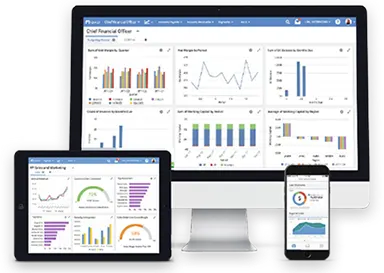The medical devices industry operates under stringent regulations and requires robust systems to manage its complex operations. SAP Business One provides a comprehensive solution to meet these demands. Here’s a detailed look at the benefits of SAP Business One for the medical devices industry:
Efficient Sub-Contracted Operations and Supply Chain Management
Managing sub-contracted operations and supply chains efficiently is crucial for medical devices companies. SAP Business One offers advanced tools for overseeing these aspects, ensuring seamless coordination between various subcontractors and suppliers. This integration leads to improved visibility across the supply chain, enabling timely deliveries, reducing lead times, and enhancing overall operational efficiency.
Comprehensive Device History Tracking
Keeping a detailed history of each medical device is essential for compliance and quality control. SAP Business One enables comprehensive device history tracking, recording every detail from production to distribution. This feature ensures that companies can trace each device’s lifecycle, facilitating quick responses to quality issues, recalls, and audits.
Robust Post-Sale Service and Support
Post-sale service and support are critical in the medical devices industry to maintain customer satisfaction and compliance. SAP Business One supports post-sale activities with tools for managing warranties, service contracts, and customer inquiries. This ensures that customers receive timely and effective support, enhancing their trust and loyalty to the company.
Enhanced Compliance and Quality Management
Compliance with industry regulations and maintaining high-quality standards are paramount in the medical devices industry. SAP Business One provides robust compliance and quality management tools, including automated reporting, real-time monitoring, and audit trails. These features help companies meet regulatory requirements such as FDA and ISO standards, ensuring that all products are safe and effective.
Detailed Transaction Audit Trails and Complete Lot Traceability
Accurate tracking of transactions and lot traceability are essential for regulatory compliance and quality control. SAP Business One offers detailed transaction audit trails and complete lot traceability, enabling companies to track every transaction and lot throughout the supply chain. This capability is crucial for identifying and addressing quality issues, conducting recalls, and complying with regulatory audits.
Optimized Inventory Location Procedures and Advanced Order Fulfilment
Effective inventory management and order fulfilment are vital for operational efficiency and customer satisfaction. SAP Business One optimizes inventory location procedures and provides advanced order fulfilment capabilities. These features ensure that inventory levels are accurately monitored, stock is efficiently located, and orders are fulfilled promptly. This leads to reduced inventory costs, minimized stakeouts, and improved customer service.
SAP Business One offers a comprehensive suite of tools tailored to meet the unique challenges of the medical devices industry. From efficient supply chain management to detailed compliance tracking and robust post-sale support, SAP Business One helps companies streamline their operations, maintain high-quality standards, and ensure regulatory compliance. Implementing SAP Business One can lead to significant improvements in operational efficiency, customer satisfaction, and overall business success in the medical devices industry.

